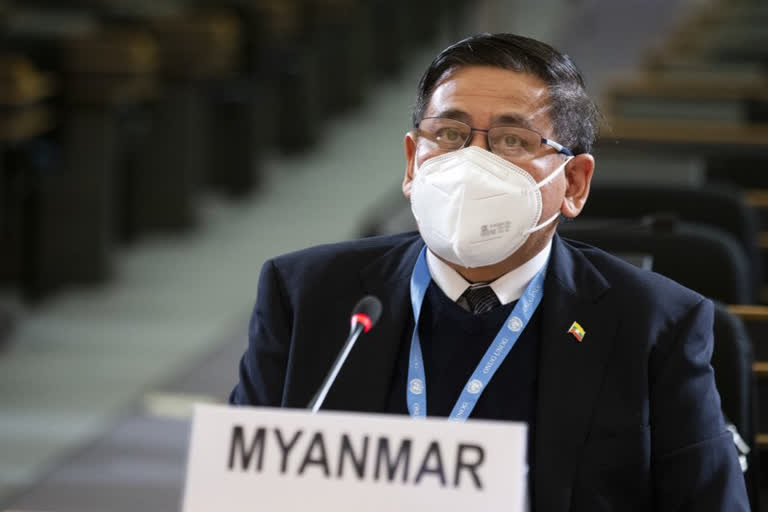Geneva:The U.N.’s top human rights body passed a consensus resolution on Friday urging military leaders in Myanmar to immediately release Aung San Suu Kyi and other civilian government leaders detained after a military coup while watering down an initial draft text amid pressure led by China and Russia.
In a special session at the Human Rights Council, the original resolution presented by Britain and the European Union was revised to remove calls to bolster the ability of a U.N. rights expert to scrutinize Myanmar and for restraint from the country’s military.
After the updated resolution passed with no opposition, Chinese Ambassador Chen Xu thanked the sponsors for “adopting our recommendations” but said China still was distancing itself from the measure.
The sponsors of council resolutions often agree to soften the language of their texts to win consensus and to show that the 47-member body is united on thorny human rights issues.
The council has no power to impose sanctions but can train a political spotlight on rights abuses and violations. The session came shortly after the Biden administration, which has already imposed sanctions on top leaders of the Myanmar coup, revived U.S. participation in the Human Rights Council, which the Trump administration pulled the country out of in 2018.
Read:|Why is the military taking control in Myanmar?
U.N. spokesman Stephane Dujarric called the resolution’s adoption “a very important step” that shows “the international community will speak strongly ... in calling for a reversal of the events we’ve seen in Myanmar, and for the full respect of the democratic will of the people of Myanmar as well as full respect of their human rights.”
“The disproportionate use of force, the use of live ammunition -- those are all unacceptable,” Dujarric stressed.
China and Russia faulted attempts to politicize the situation in Myanmar and called it a domestic matter. Many Western countries, the U.N. rights office and others decried the coup and state of emergency.
“The seizure of power by the Myanmar military earlier this month constitutes a profound setback for the country after a decade of hard-won gains in its democratic transition,” Deputy High Commissioner for Human Rights Nada al-Nashif said. “The world is watching.”
The revised text excised a call on U.N. Secretary-General Antonio Guterres and the U.N. human rights chief, Michelle Bachelet, to give the independent U.N. special rapporteur on Myanmar, Tom Andrews, “increased assistance, resources and expertise” to carry out his job.
“We need real action from the United Nations,” said Andrews, a former member of the U.S. House of Representatives, citing information that the junta had detained 220 government officials and civil society members.
“The message from the people of Myanmar to all of you and the people of the world is clear: This cannot stand,” he said. Andrews has been seeking the right to visit Myanmar, which its government has denied.
